FOR IMMEDIATE RELEASE:
 BORAS, Sweden – How does a man living a lavish life in multiple cities plan a complicated revenge plot while chasing a new, sexy romance? In the thrilling romance “Mr. Pink” (Oct. 6, 2020), by Patrick Hjertén, this billionaire does just that. Readers will be enthralled with Mr. Pink from the very start, a man who manages to continue living a glamorous, exciting life while seeking vengeance for a friend who was sexually assaulted.
BORAS, Sweden – How does a man living a lavish life in multiple cities plan a complicated revenge plot while chasing a new, sexy romance? In the thrilling romance “Mr. Pink” (Oct. 6, 2020), by Patrick Hjertén, this billionaire does just that. Readers will be enthralled with Mr. Pink from the very start, a man who manages to continue living a glamorous, exciting life while seeking vengeance for a friend who was sexually assaulted.
Mr. Pink is usually busy being a bossy, controlling billionaire who owns a magazine, publishing house, and homes in both Stockholm and London. But he’s also busy planning revenge on a man responsible for his college best friend’s coma. When he’s not calling in favors, buying priceless artwork, manipulating the international stock market or indulging in light blackmail, he’s at the spa with his besties or enjoying a casual sexual encounter. Used to being in control of everyone, moody journalist Andreas keeps Mr. Pink guessing from the moment they meet.
And Mr. Pink can’t resist — or stay away. Will he be able to get the guy and stay focused on his elaborate revenge, or will this notoriously successful man find himself going under?
“Mr. Pink”
Patrick Hjertén | Oct. 6, 2020 | Gay Romance
Paperback | 9781735268903 | $12.99 | Ebook | 9781735268910 | $4.99
About The Author
Patrick Hjertén dwells comfortably in both England and Sweden, calling himself a Swedish country life and London city life mixture. He has dreamed of writing a novel since his grandmother read him books as a child and has been creating stories since then. Working as a freelance copywriter, writer, and as head of the business department of a Sixth Form College, Hjertén’s life passion remains all things creative, and his new novel gives insight into that fiery artistry. For more information, visit https://mrpinkbook.com/.
In an interview, Patrick Hjertén can discuss:
- Living in both England and Sweden and how his experiences in those locations inspired him in setting the novel’s location
- The inspiration for the fiery and controlling yet charismatic billionaire Mr. Pink
- Working as a copywriter and head of a business department and how that career path influenced his new path as a fiction writer
- Writing for an LGBTQ+ audience and the importance of #ownvoices authors
- His unique family heritage as a descendant of a 16th-century Swedish monarch
An Interview with Patrick Hjertén
Is there anyone in particular that you thought of when creating the character of Mr. Pink?
Growing up, I watched “Dallas,” “Dynasty” and “Falcon Crest,” and I loved them. I have taken characteristics from their more evil personalities on the shows, and I have also taken a lot from myself. You could say that Mr. Pink is a darker version of me — my evil twin.
How has your work as a copywriter and head of a business department informed you in writing a novel?
When it comes to copywriting you have to be creative on demand, so to speak. You have to use different tone of voices and you have to work against deadlines. Sometimes really tight deadlines, like one I had recently. This has given me the ability to have a diverse language, and many voices. And I am good at churning out text at a fairly high speed.
There are multiple facets to this novel — an LGBTQ+ relationship, a successful and powerful businessman, a woman dealing with sexual assault — where there any difficulties you found trying to create a cohesive narrative?
I sometimes describe my way of making up a story like when I make a beef stew. I look in my fridge and in my cupboards to see what I have. And then put in a bit of this and a bit of that. And then what happens if I add this? Stir, let simmer and voilá. Mr. Pink is a mix of my own life and own experiences, people I have met, and stories I have been told, all seasoned with inspiration from books that have touched me and ’80s prime-time soap operas.
How did your life in both Sweden and England help to inspire aspects of the book? Did you ever think about setting the book in a different location?
As I mentioned above, I have taken a lot from my own life and from things I have been told by others. I’ve then twisted it and pumped up the drama level. I used settings in England and Sweden, as well as in Los Angeles, because I know these places best. It is so much easier to write about places you know.
Can you talk a bit about your interesting family lineage — not everyone is literally descended from royalty!
It might sound strange but I have always been interested in royalty from the past, and I sort of felt that I was connected to them before I actually knew that I was linked to them. I am the descendant of Erik XIV, of Sweden, and his illegitimate daughter who he gave the name Virginia — he and his brothers had quite a few illegitimate children. They were all taken from their mothers and raised at the court of princess Cecilia (who also spent time at the court of Elizabeth, the first of England, and was a pirate princess). Erik’s father was a noble man who grabbed the power of the Swedish crown, but his mother was a German princess and the source to the really interesting characters. The families of power married each other back and forth. That is why I am connected to Charlemagne in 15 different ways.
When you read about them and the things they did to keep power and gain power it is on par with “Game of Thrones.” One example is the ancestor who had her second son killed so that the eldest could have all the power to himself. And then there’s the ancestor who was the illegitimate son of the duke of Normandy. He was the only one to inherit the title, but at one time, he was challenged and slandered. He had the hands and feet of these people cut off. Some years later, he became known as William the Conqueror when he conquered England.
What do you hope readers will take away from this book?
I hope that they will be thrilled, entertained and that it will be a page turner for them. And of course, that they will want to read more of my stories.

A former award-winning journalist with national exposure, Marissa now oversees the day-to-day operation of the Books Forward author branding and book marketing firm, along with our indie publishing support sister company Books Fluent.
Born and bred in Louisiana, currently living in New Orleans, she has lived and developed a strong base for our company and authors in Chicago and Nashville. Her journalism work has appeared in USA Today, National Geographic and other major publications. She is now interviewed by media on best practices for book marketing.
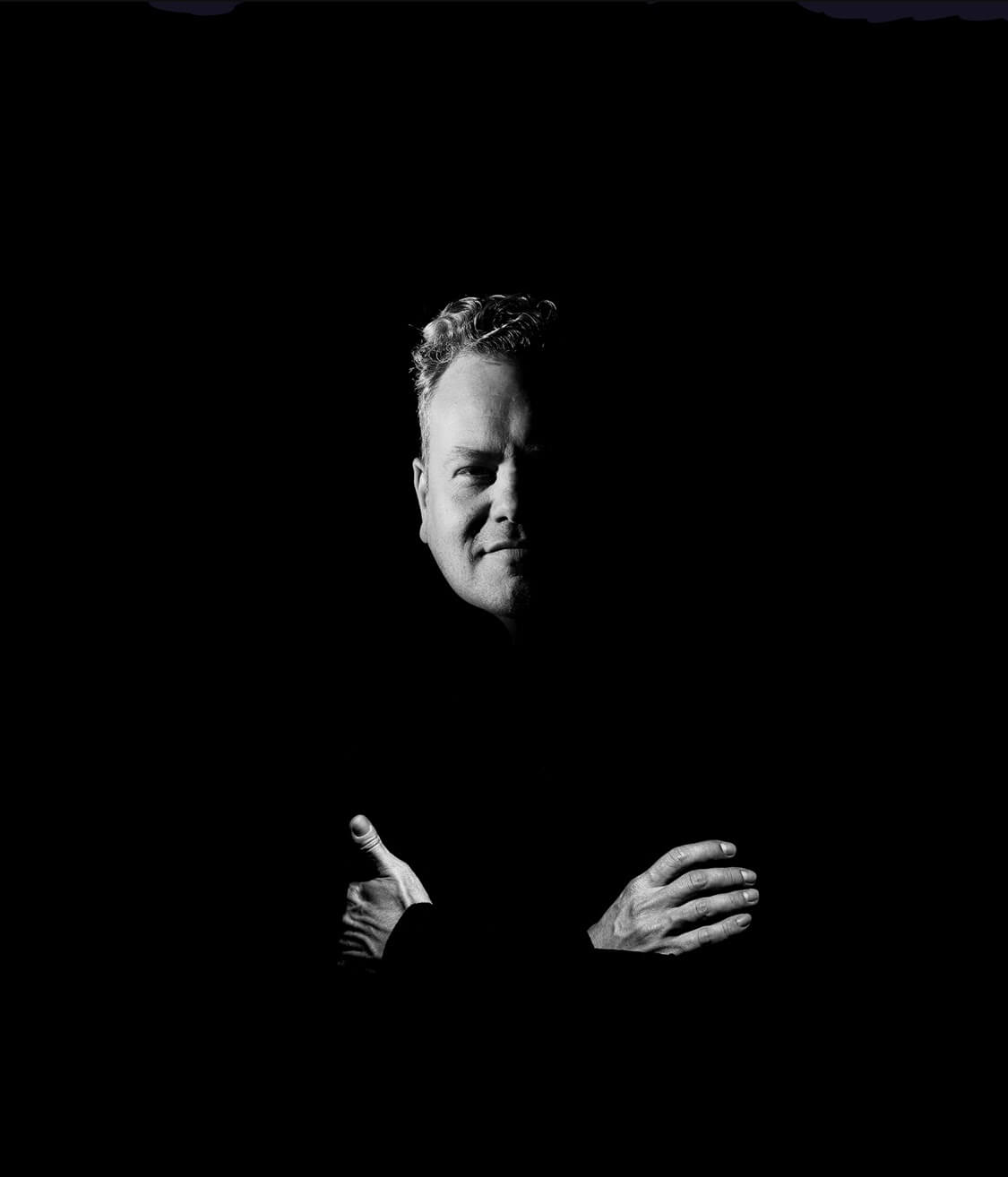
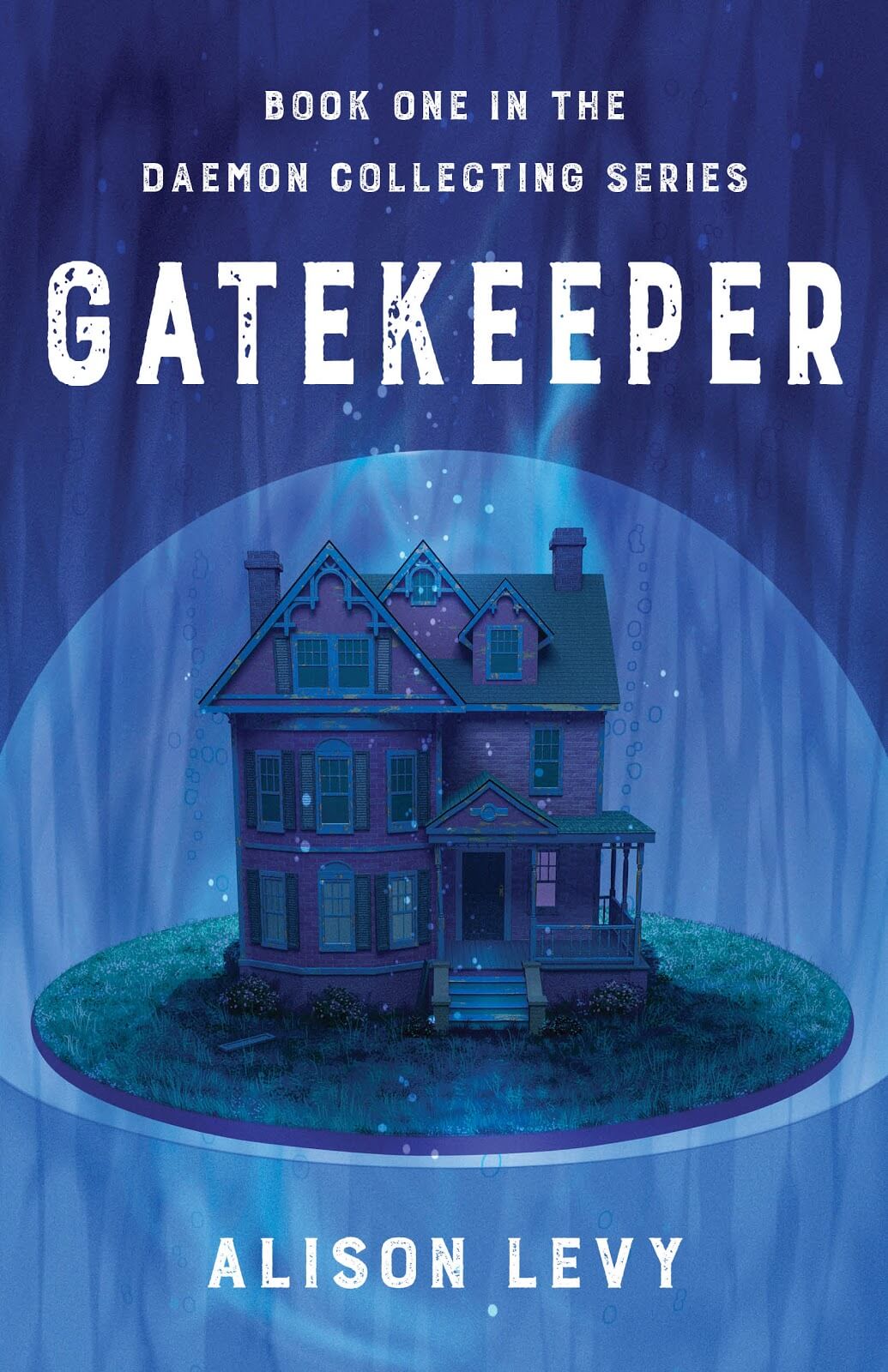 GREENSBORO, North Carolina
GREENSBORO, North Carolina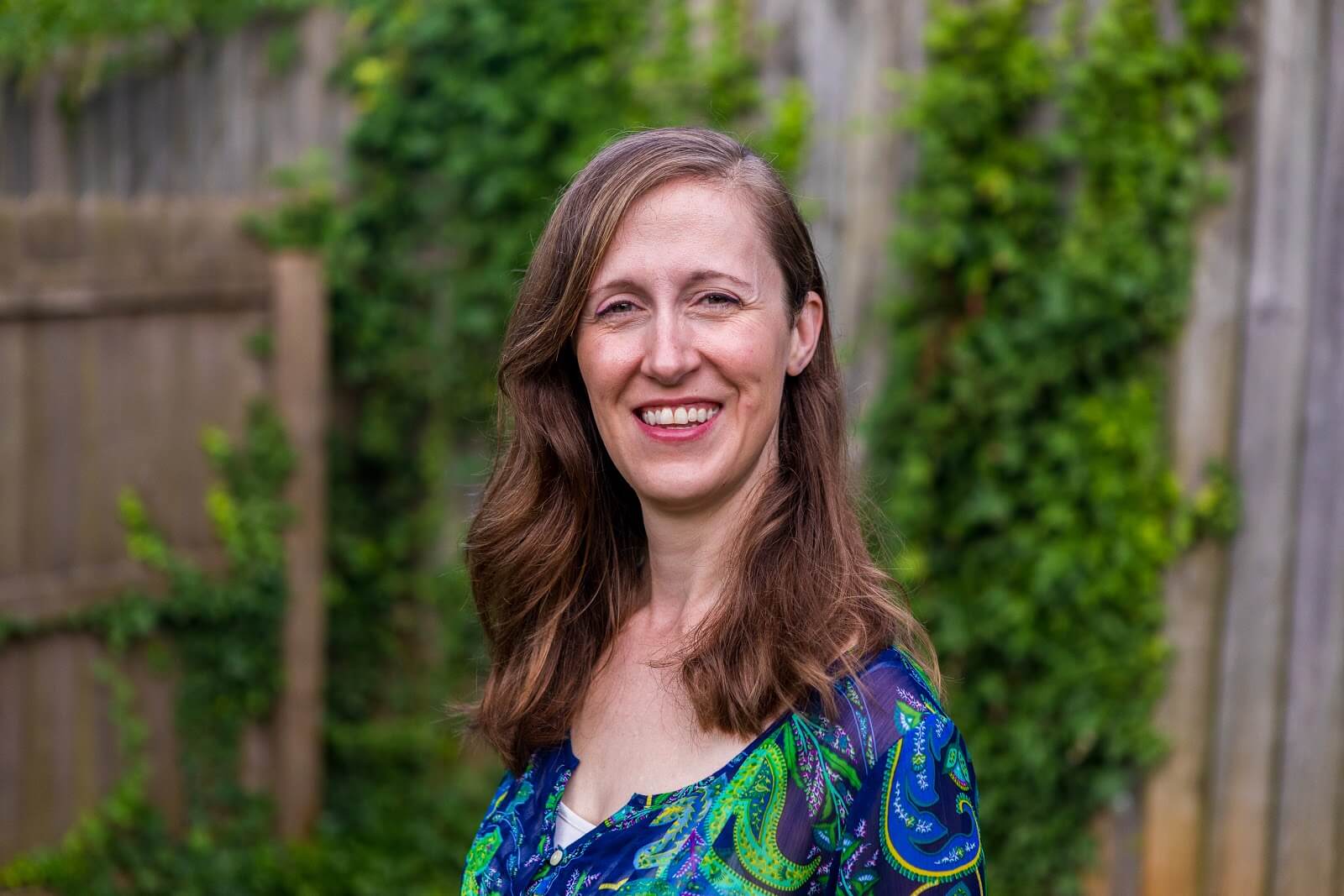
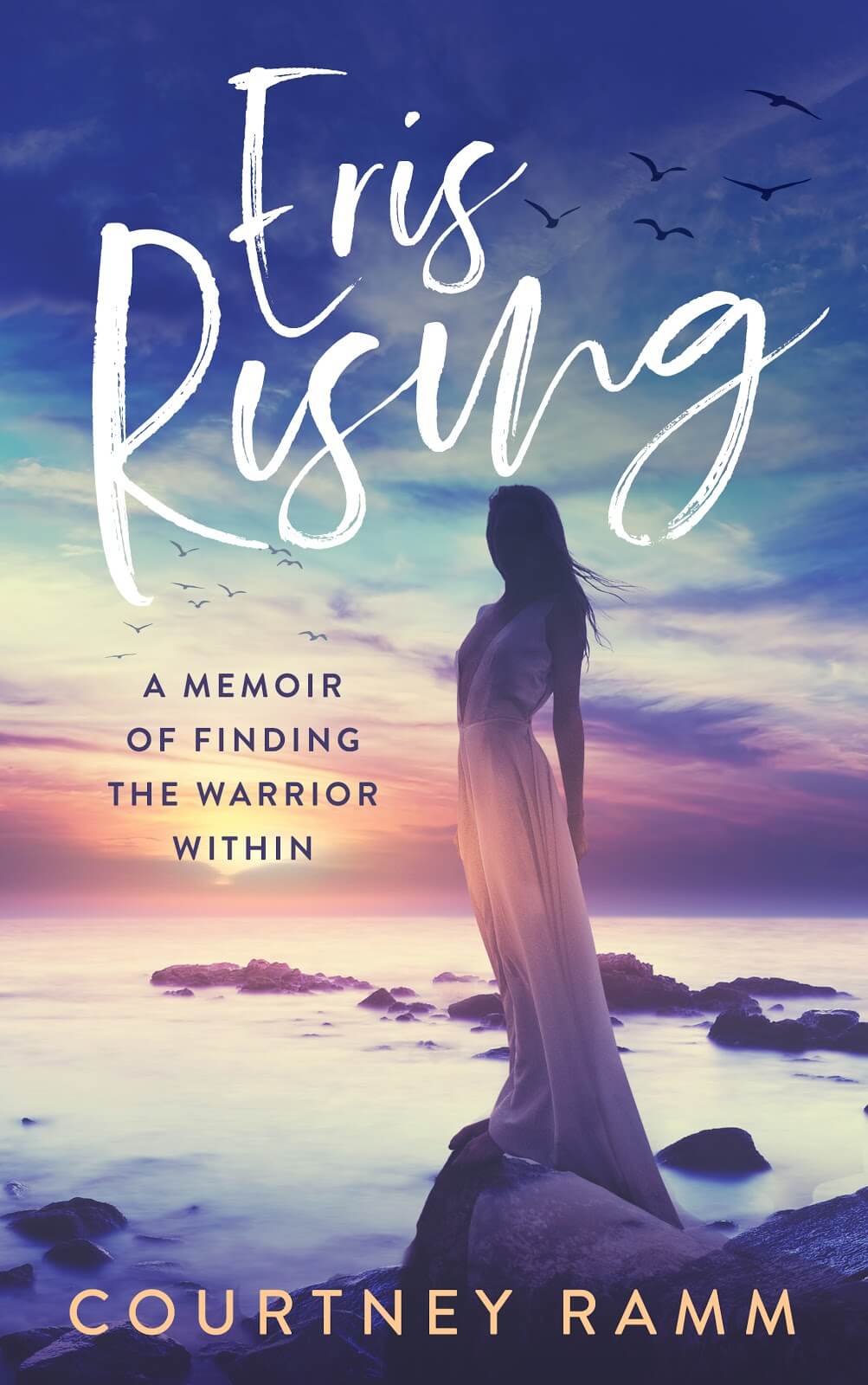 San Francisco, CA — A professional dancer, choreographer, and yoga teacher with talent in spades crosses paths with an enticing, yet manipulative man in Courtney Ramm’s honest memoir, “Eris Rising” (Acorn Publishing, Oct. 27, 2020).
San Francisco, CA — A professional dancer, choreographer, and yoga teacher with talent in spades crosses paths with an enticing, yet manipulative man in Courtney Ramm’s honest memoir, “Eris Rising” (Acorn Publishing, Oct. 27, 2020).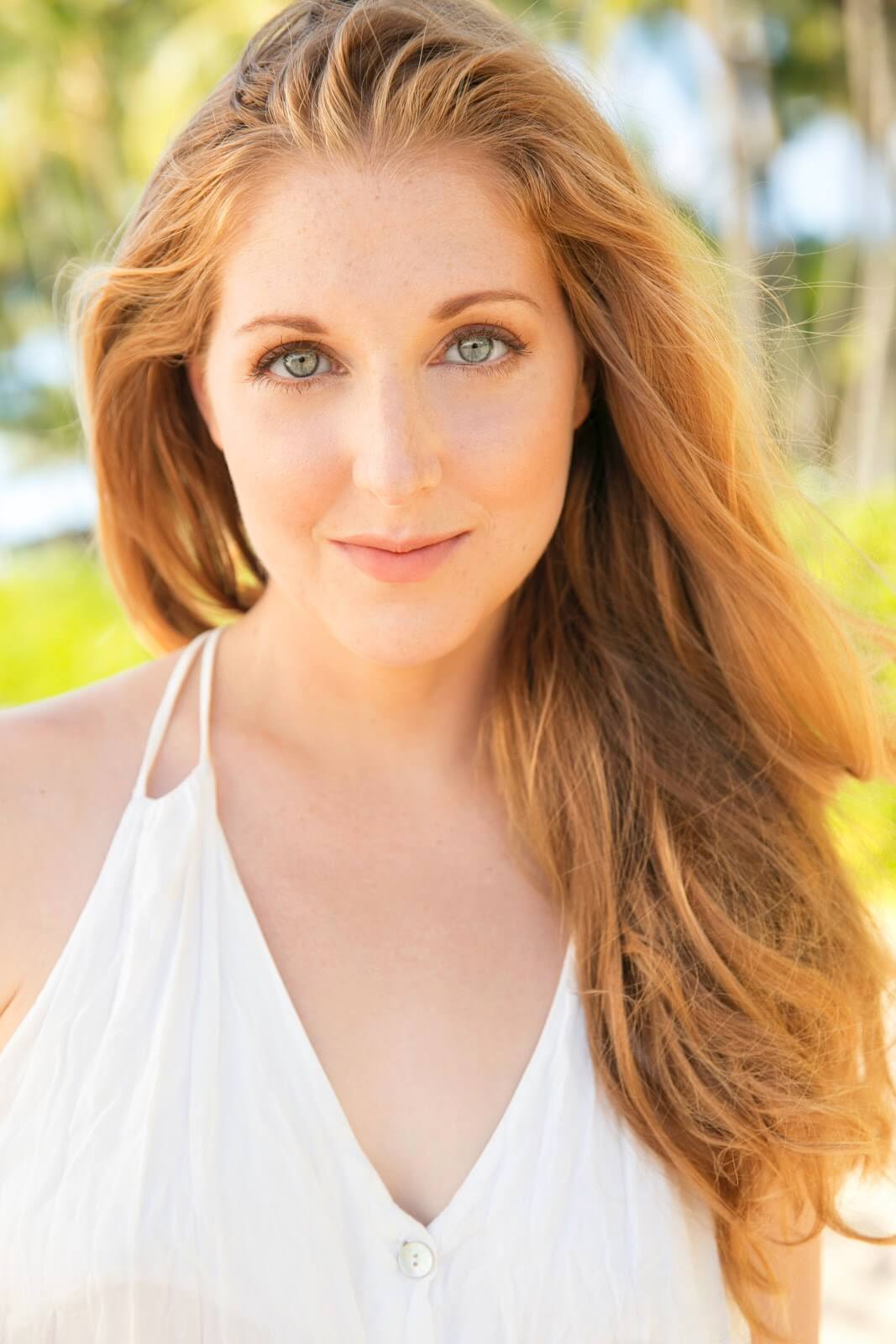 Courtney Ramm: Born and raised in the heart of New York City, Courtney Ramm has followed her passion for dance since childhood, which led to a career as a professional dancer, choreographer, and teacher. She’s directed dance schools, performed, and taught all over the world, from Singapore to Thailand to Manhattan. With her Master’s degree in Dance Education, Courtney has led wellness retreats in Hawaii, focusing on empowerment and transformation. Courtney is the founder and artistic director of the non-profit dance company, RammDance. She blends her love of dance with holistic healing, and is a certified Pilates instructor, Yoga teacher, Ayurvedic consultant, Theta healer, Master Detox Chef, and Reiki practitioner. Alongside her focused training and career in dance, writing has always been one of Courtney’s passions. She knew she would write a book — although she never imagined her memoir would take such a twisted turn. Courtney is a full-time single mama to two toddlers. “Eris Rising” is her first book. For more information, please visit:
Courtney Ramm: Born and raised in the heart of New York City, Courtney Ramm has followed her passion for dance since childhood, which led to a career as a professional dancer, choreographer, and teacher. She’s directed dance schools, performed, and taught all over the world, from Singapore to Thailand to Manhattan. With her Master’s degree in Dance Education, Courtney has led wellness retreats in Hawaii, focusing on empowerment and transformation. Courtney is the founder and artistic director of the non-profit dance company, RammDance. She blends her love of dance with holistic healing, and is a certified Pilates instructor, Yoga teacher, Ayurvedic consultant, Theta healer, Master Detox Chef, and Reiki practitioner. Alongside her focused training and career in dance, writing has always been one of Courtney’s passions. She knew she would write a book — although she never imagined her memoir would take such a twisted turn. Courtney is a full-time single mama to two toddlers. “Eris Rising” is her first book. For more information, please visit: 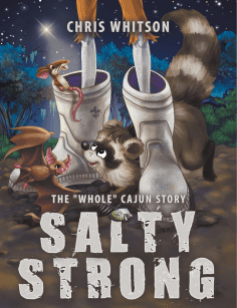 NEW ORLEANS, La. — Salty is a divine Cajun boy created from the salt of the earth — literally. Dwelling deep within the hidden caverns of South Louisiana’s ancient salt domes, Salty spent his days cooking and caring for the critters of the Cajun swamp. Salty’s life was one of mineral harmony.
NEW ORLEANS, La. — Salty is a divine Cajun boy created from the salt of the earth — literally. Dwelling deep within the hidden caverns of South Louisiana’s ancient salt domes, Salty spent his days cooking and caring for the critters of the Cajun swamp. Salty’s life was one of mineral harmony.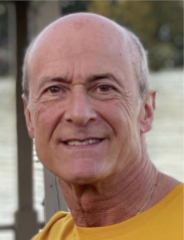 Chris Whitson was born and raised in New Orleans and now lives in Orlando, Fl. He and his wife have four children and six fun loving, high energy, grandchildren.
Chris Whitson was born and raised in New Orleans and now lives in Orlando, Fl. He and his wife have four children and six fun loving, high energy, grandchildren. From two experts on the psychology of behavior change comes “A Mindful Year,” an inspirational guide, urging and inciting readers to reconnect with themselves.
From two experts on the psychology of behavior change comes “A Mindful Year,” an inspirational guide, urging and inciting readers to reconnect with themselves. DR. ARIA CAMPBELL-DANESH: Dr. Aria Campbell-Danesh, DClinPsy, CPsychol, is a doctor in clinical psychology and an expert in the fields of behavior change and long-term health (dr-aria.com). A mindfulness specialist and creator of the FIT Method, he works internationally with clients on their mindset, exercise, and nutrition. He is regularly featured in popular lifestyle publications such as Men’s Health, Women’s Health and Marie Claire. Dr. Aria is an Associate Fellow with the British Psychological Society and Senior Associate Member of the Royal Society of Medicine.
DR. ARIA CAMPBELL-DANESH: Dr. Aria Campbell-Danesh, DClinPsy, CPsychol, is a doctor in clinical psychology and an expert in the fields of behavior change and long-term health (dr-aria.com). A mindfulness specialist and creator of the FIT Method, he works internationally with clients on their mindset, exercise, and nutrition. He is regularly featured in popular lifestyle publications such as Men’s Health, Women’s Health and Marie Claire. Dr. Aria is an Associate Fellow with the British Psychological Society and Senior Associate Member of the Royal Society of Medicine. SETH J. GILLIHAN, PHD: Seth J. Gillihan, PhD, is a licensed psychologist and Clinical Assistant Professor of Psychology in the Psychiatry Department at the University of Pennsylvania. He divides his professional time between psychotherapy practice, writing books and blog posts, and hosting conversations on living more fully for the Think Act Be podcast. His previous books include The CBT Deck; The CBT Deck for Anxiety, Rumination, & Worry; Retrain Your Brain: Cognitive Behavioral Therapy in 7 Weeks and Cognitive Behavioral Therapy Made Simple. Dr. Gillihan specializes in mindfulness-based cognitive behavioral therapy for anxiety, depression, and related conditions. He lives outside of Philadelphia, PA, with his wife and three children.
SETH J. GILLIHAN, PHD: Seth J. Gillihan, PhD, is a licensed psychologist and Clinical Assistant Professor of Psychology in the Psychiatry Department at the University of Pennsylvania. He divides his professional time between psychotherapy practice, writing books and blog posts, and hosting conversations on living more fully for the Think Act Be podcast. His previous books include The CBT Deck; The CBT Deck for Anxiety, Rumination, & Worry; Retrain Your Brain: Cognitive Behavioral Therapy in 7 Weeks and Cognitive Behavioral Therapy Made Simple. Dr. Gillihan specializes in mindfulness-based cognitive behavioral therapy for anxiety, depression, and related conditions. He lives outside of Philadelphia, PA, with his wife and three children.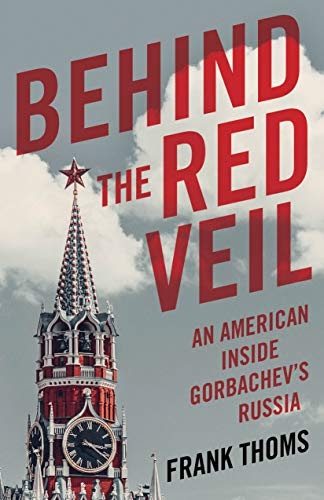 San Miguel de Allende, Mexico –– The 1985–1991 policies of perestroika and glasnost marked a new age of openness and transparency in the USSR, leading to an increased mutual curiosity between ordinary Americans and Russians. Beginning with his first trip behind the Iron Curtain, Frank Thoms sought to engage in empathic conversations with everyone he met. Yet he understood he would be inside one of the most inaccessible countries on the planet. In the classroom, he forged close relationships with his students and colleagues. On the streets and in flats, he opened his heart to Russians, and they opened theirs to him.
San Miguel de Allende, Mexico –– The 1985–1991 policies of perestroika and glasnost marked a new age of openness and transparency in the USSR, leading to an increased mutual curiosity between ordinary Americans and Russians. Beginning with his first trip behind the Iron Curtain, Frank Thoms sought to engage in empathic conversations with everyone he met. Yet he understood he would be inside one of the most inaccessible countries on the planet. In the classroom, he forged close relationships with his students and colleagues. On the streets and in flats, he opened his heart to Russians, and they opened theirs to him.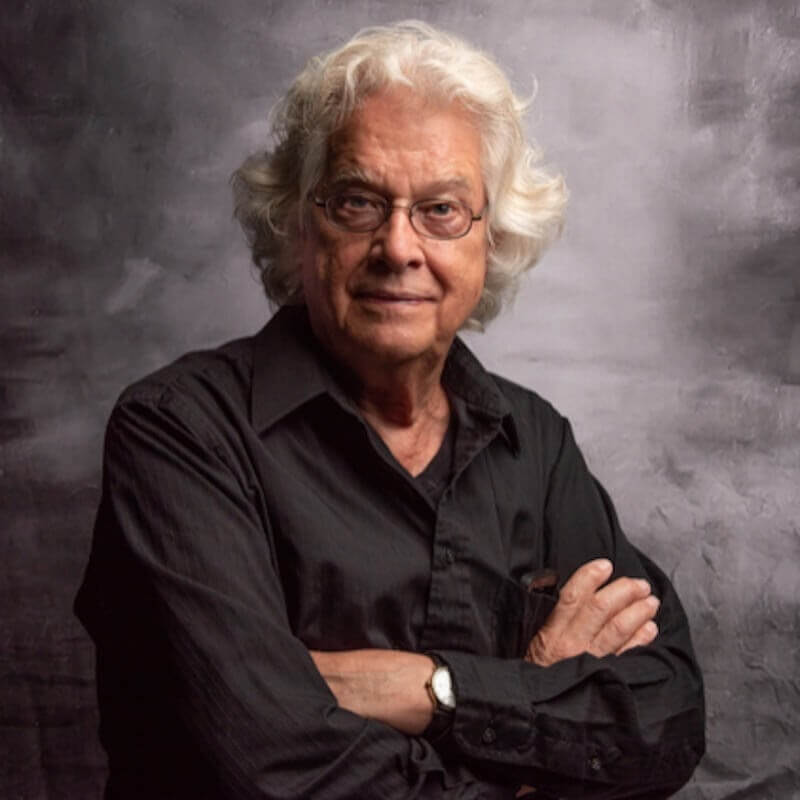 FRANK THOMS: After forty years as a teacher and twelve as a consultant and keynote speaker, Frank Thoms became a writer, publishing four books: Teaching from the Middle of the Room: Inviting Students to Learn with Stetson Press, (2010), and three books with Rowman & Littlefield, Teaching That Matters: Engaging Minds, Improving Schools (2015); Exciting Classrooms: Practical Information to Ensure Student Success (2015); and Listening is Learning: Conversations between 20th and 21st Century Teachers (2019). He spent the majority of his teaching career with eighth graders in public and private schools in New Hampshire and Massachusetts. He coached soccer and hockey, directed an educational consortium, had his own darkroom, wrote op-eds, led bike tours, rebuilt his VW engine, played volleyball and softball, and served as an educational consultant. For the past nine years, he has lived with his wife in San Miguel de Allende, Mexico, where he continues to write, joined a philosophy group, mentors university students, and is a member of a book group. He is also on the faculty of the San Miguel Writers’ Conference and Literary Festival and serves as its Ambassador-at-Large.
FRANK THOMS: After forty years as a teacher and twelve as a consultant and keynote speaker, Frank Thoms became a writer, publishing four books: Teaching from the Middle of the Room: Inviting Students to Learn with Stetson Press, (2010), and three books with Rowman & Littlefield, Teaching That Matters: Engaging Minds, Improving Schools (2015); Exciting Classrooms: Practical Information to Ensure Student Success (2015); and Listening is Learning: Conversations between 20th and 21st Century Teachers (2019). He spent the majority of his teaching career with eighth graders in public and private schools in New Hampshire and Massachusetts. He coached soccer and hockey, directed an educational consortium, had his own darkroom, wrote op-eds, led bike tours, rebuilt his VW engine, played volleyball and softball, and served as an educational consultant. For the past nine years, he has lived with his wife in San Miguel de Allende, Mexico, where he continues to write, joined a philosophy group, mentors university students, and is a member of a book group. He is also on the faculty of the San Miguel Writers’ Conference and Literary Festival and serves as its Ambassador-at-Large.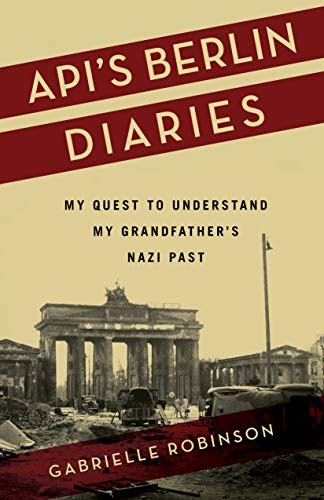 SOUTH BEND, IN – Imagine if you found out that someone you loved had a dark past. That happened to author Gabrielle Robinson, as she tried to reconcile the grandfather she knew with his complex past in her memoir Api’s Berlin Diaries (She Writes Press, September 15, 2020).
SOUTH BEND, IN – Imagine if you found out that someone you loved had a dark past. That happened to author Gabrielle Robinson, as she tried to reconcile the grandfather she knew with his complex past in her memoir Api’s Berlin Diaries (She Writes Press, September 15, 2020).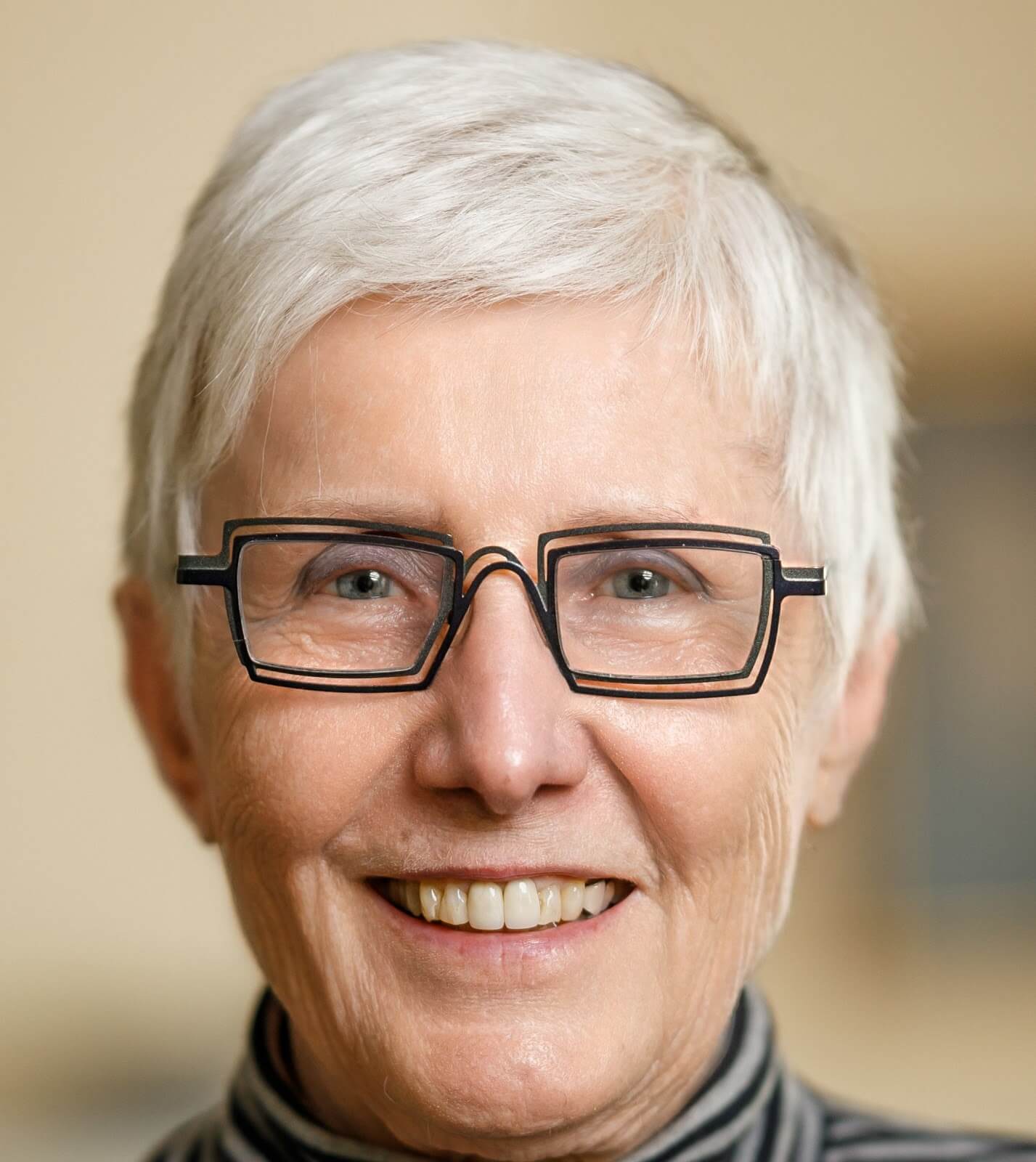 GABRIELLE ROBINSON tells stories about people that reveal their personal situation within its historical context. One reason for her fascination with the intersection of the personal and historical stems from her own experience. Born in Berlin in 1942, her father’s fighter plane was shot down over England in 1943; after her family was bombed out twice, they fled Berlin in 1945, the beginning of a string of migrations that ended in the US. Gabrielle holds an MA from Columbia University and a PhD from the University of London. She has taught at the University of Illinois, at Indiana University South Bend, and abroad, and has won a number of awards for her writing and community engagement. Gabrielle is now settled in South Bend, Indiana, with her husband Mike Keen, a sociologist turned sustainable neighborhood developer, and their cat Max. Her favorite leisure time reading is about animals and trees. Learn more about Gabrielle and Api’s Berlin Diaries at
GABRIELLE ROBINSON tells stories about people that reveal their personal situation within its historical context. One reason for her fascination with the intersection of the personal and historical stems from her own experience. Born in Berlin in 1942, her father’s fighter plane was shot down over England in 1943; after her family was bombed out twice, they fled Berlin in 1945, the beginning of a string of migrations that ended in the US. Gabrielle holds an MA from Columbia University and a PhD from the University of London. She has taught at the University of Illinois, at Indiana University South Bend, and abroad, and has won a number of awards for her writing and community engagement. Gabrielle is now settled in South Bend, Indiana, with her husband Mike Keen, a sociologist turned sustainable neighborhood developer, and their cat Max. Her favorite leisure time reading is about animals and trees. Learn more about Gabrielle and Api’s Berlin Diaries at  CHICAGO – From two-time Moth StorySLAM winner Margaret Davis Ghielmetti comes “Brave(ish): A Memoir of a Recovering Perfectionist” (Sept. 15, 2020, She Writes Press).
CHICAGO – From two-time Moth StorySLAM winner Margaret Davis Ghielmetti comes “Brave(ish): A Memoir of a Recovering Perfectionist” (Sept. 15, 2020, She Writes Press). Margaret Davis Ghielmetti is the author of “Brave(ish): A Memoir of a Recovering Perfectionist” (Sept. 15, 2020, She Writes Press). She has lived on four continents and has visited nearly 50 countries. She is a Live Lit Storyteller who has won two StorySLAMs with The Moth. She wrote and performed a solo show, “Fierce,” about re-discovering her creative expression, and is passionate about sharing the beauty of the world through her photos. Nothing delights her more than genuine connection. She and her Swiss-born husband, Patrick, can be found in Chicago when they’re not out exploring. For more, visit
Margaret Davis Ghielmetti is the author of “Brave(ish): A Memoir of a Recovering Perfectionist” (Sept. 15, 2020, She Writes Press). She has lived on four continents and has visited nearly 50 countries. She is a Live Lit Storyteller who has won two StorySLAMs with The Moth. She wrote and performed a solo show, “Fierce,” about re-discovering her creative expression, and is passionate about sharing the beauty of the world through her photos. Nothing delights her more than genuine connection. She and her Swiss-born husband, Patrick, can be found in Chicago when they’re not out exploring. For more, visit 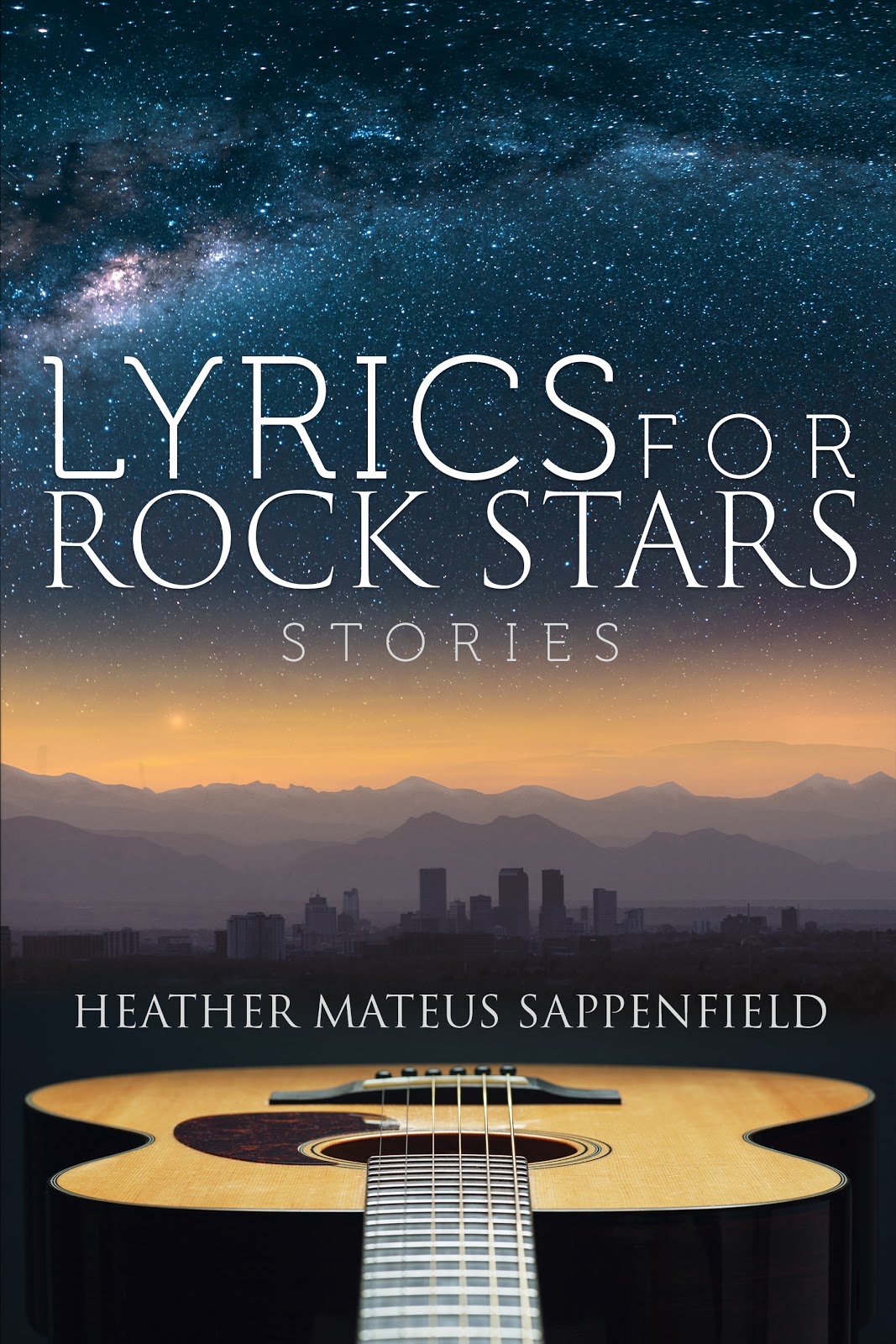 VAIL, Colorado– Tracing the complex unfolding of generations throughout history, paying particular attention to women’s stories, and children who are often wise beyond their years, Heather Mateus Sappenfield brings dynamic characters to life in a bold collection of stories.
VAIL, Colorado– Tracing the complex unfolding of generations throughout history, paying particular attention to women’s stories, and children who are often wise beyond their years, Heather Mateus Sappenfield brings dynamic characters to life in a bold collection of stories.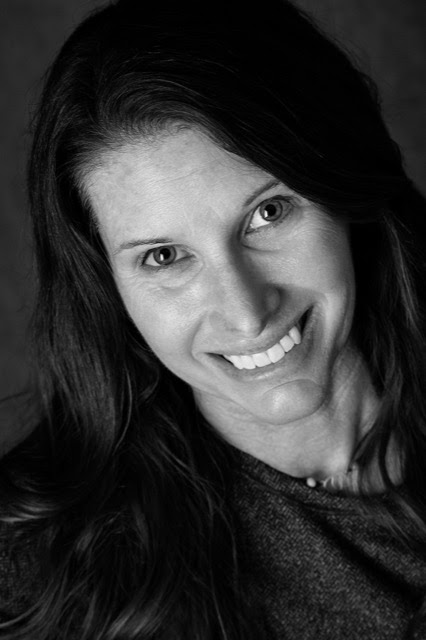 HEATHER MATEUS SAPPENFIELD: Heather Mateus Sappenfield’s writing explores the adventures that fill life, often in the Rocky Mountain landscape that has been her lifelong home. She’s fascinated by the many selves each of us becomes in our varied roles throughout the day (some we like, some we do not), and her writing often delves into the internal adventure of juggling those multiple selves. Among the many accolades her fiction has received are the Danahy Fiction Prize, the Arthur Edelstein Prize and three Pushcart Prize nominations. Her work has also been recognized as a finalist for the Flannery O’Connor Award, the Kraken Prize, and the Colorado Book Awards. “Lyrics for Rock Stars” is her first short story collection. To learn more about her life and work, visit:
HEATHER MATEUS SAPPENFIELD: Heather Mateus Sappenfield’s writing explores the adventures that fill life, often in the Rocky Mountain landscape that has been her lifelong home. She’s fascinated by the many selves each of us becomes in our varied roles throughout the day (some we like, some we do not), and her writing often delves into the internal adventure of juggling those multiple selves. Among the many accolades her fiction has received are the Danahy Fiction Prize, the Arthur Edelstein Prize and three Pushcart Prize nominations. Her work has also been recognized as a finalist for the Flannery O’Connor Award, the Kraken Prize, and the Colorado Book Awards. “Lyrics for Rock Stars” is her first short story collection. To learn more about her life and work, visit:  ASHEVILLE, North Carolina – Anne Reeder Heck’s new memoir offers both guidance and solace for those seeking healing and ready to explore paths of forgiveness and spirituality. A Fierce Belief in Miracles: My Journey from Rape to Healing and Wholeness (She Writes Press, Sept. 22, 2020) is a powerful and uplifting story of determination and trust. It’s for anyone who believes in—or questions—the existence of miracles
ASHEVILLE, North Carolina – Anne Reeder Heck’s new memoir offers both guidance and solace for those seeking healing and ready to explore paths of forgiveness and spirituality. A Fierce Belief in Miracles: My Journey from Rape to Healing and Wholeness (She Writes Press, Sept. 22, 2020) is a powerful and uplifting story of determination and trust. It’s for anyone who believes in—or questions—the existence of miracles Anne Reeder Heck’s life and livelihood are brimming with miracles. As a seasoned facilitator of spiritual circles for women, a certified Healing Touch practitioner, and an ordained interfaith minister, Anne is devoted to inspiring and guiding others to trust themselves, open to their intuitive guidance, and experience the magic of life through ceremony, positive intention and a creative, curious spirit.
Anne Reeder Heck’s life and livelihood are brimming with miracles. As a seasoned facilitator of spiritual circles for women, a certified Healing Touch practitioner, and an ordained interfaith minister, Anne is devoted to inspiring and guiding others to trust themselves, open to their intuitive guidance, and experience the magic of life through ceremony, positive intention and a creative, curious spirit.
